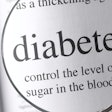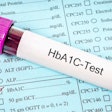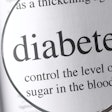
Klick Applied Sciences on Friday announced that its scientists have developed a method for diabetes screening and prevention using artificial intelligence (AI) and 12 hours of data with continuous glucose monitor (CGM) technology.
In a presentation at the NeurIPS conference in New Orleans, the scientists presented findings from a study on 600 patients who were identified as healthy, prediabetic, or living with type 2 diabetes, Klick said.
The patients wore a CGM device for an average of 12 days, while the scientists observed glucose measurements and developed machine-learning models to see if those levels could determine whether the individual was healthy, prediabetic, or had type 2 diabetes.
“We have demonstrated that 12 hours of monitoring can make a big difference in the lives of people at risk of developing diabetes while there’s still time to course correct,” Jouhyun Jeon, the study’s lead scientist and principal investigator at Klick, said in a statement.
Jeon added that their 12-hour model demonstrated similar high accuracy as results from longer intervals and that the model was able to identify two-thirds of patients with prediabetes. The model also demonstrated high accuracy in identifying healthy participants and those with type 2 diabetes.
“Our research has tremendous potential to help move blood glucose digital biomarkers into a position where they can be an invaluable tool for physicians for preventing diabetes before it starts,” Michael Lieberman, managing director of research and development at Klick, said in a statement.



















